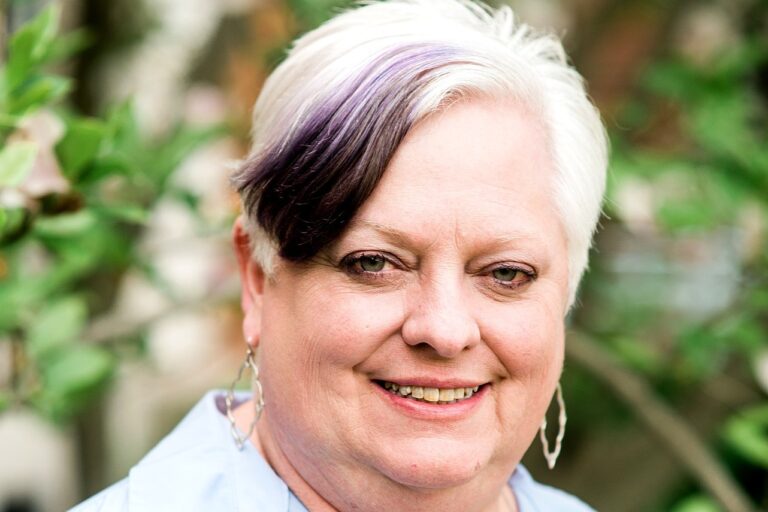Every year, the Minor in Writing (MiW) program prepares undergraduate writers to enter into a fast-changing workforce: one that requires professionals to write nimbly across different modes, technologies, departments, and even from one industry to another.
To prepare students for these varied forms of communication, the MiW is designed to be interdisciplinary. The degree program draws students interested in a range of fields and industries, yet all seeking to combine their career aspirations with a passion for writing.
Alumni from the MiW reflect the real-world value of this flexible, collaborative, and creatively-charged program. This commencement season, we highlight three recent graduates of the MiW, who share reflections about the program and the enduring role of writing in their professional and personal lives.
Islay Hepburn: Graduate Student, Master of Arts in Communication
In the spring of 2023, Islay graduated from MSU with her Bachelor of Arts degree in Psychology and Political Science, along with minors in Writing, Professional and Public Writing (P2W), Women & Gender Studies, and Law, Justice & Public Policy. She is currently pursuing her Master of Arts in Communication at MSU with two graduate specializations in Nonprofit Fundraising Strategy and Women and Gender Studies.
Like many first-year college students, Islay struggled to decide on her course of study and articulate her long-term professional goals. But regardless of her major, she knew she wanted to advocate for survivors of gender-based violence. As Islay tacked on minors and explored various routes as an undergraduate, her interest in advocacy work never wavered.
When WRAC introduced the MiW in the Fall Semester of 2021, “I felt like they did it just for me,” Islay said. At the time, she had been searching for ways to interweave Women & Gender Studies with writing and professional communication. By combining the MiW with a minor in P2W, Islay designed a robust academic program that – when paired with her majors – prepared her for the work she’s now doing as a graduate student, as well as the work she hopes to do as a professional.
When asked how the MiW and PPW minor inform her current work, Islay immediately referenced her writing capstone course with Dr. Kate Fedewa. “I feel like every undergraduate should take a course like that, regardless of what discipline they’re in,” Islay reflected.
“Dr. Fedewa’s class was so helpful,” she continued. “Every week, we talked about different aspects of presenting yourself as a professional or in grad school. We reviewed different strategies for writing resumes, cover letters, personal statements, and other documents. Dr. Fedewa encouraged us to frame the class with the question: how am I going to use writing toward my future?”
Islay is now “the person” that friends consult for support with resumes, cover letters, and other professional documents, she said. She attributes her confidence and expertise to Dr. Fedewa’s class, combined with other courses she took throughout the MiW program.
Another class on Digital Media and Design – taught by Dr. Dànielle DeVoss – challenged Islay and her classmates to expand their definitions of writing beyond alphabetic text. Dr. DeVoss assigned projects with intentionally “loose, creative, just-run-with-it guidelines,” Islay described – which resulted in a range of highly effective rhetorical works. “The class made me think about reaching certain groups of people through design and writing, which is relevant to the thought processes of nonprofits,” Islay said.
This design class solidified Islay’s academic interest in communication and writing in nonprofit settings. Today, she works as the Communications Advisor for MAPSA, Michigan’s Charter School Association, to complement her master’s coursework.
After completing her internship with MAPSA and graduating from her master’s program, Islay wants to work in policy communications. She’s interested in writing policy as well as crafting social media content and press communications for nonprofits, specifically ones that support survivors of gender-based violence through policy change.
In political, personal, and professional spaces, writing is ultimately “a therapeutic practice for me,” Islay said. “The things I enjoy the most, and feel the most passionate about, all include writing. I used to be really critical of myself when writing, but my time in the MiW taught me the importance of just getting something down, asking for feedback, and figuring out the best way to write something for different audiences.”
Surrounded by her current classmates, professors, and colleagues, Islay continues to work and write alongside people “who are just as passionate as me,” she said.
Aiden Tomkinson: Senior Accessibility Engineer at Spectrum
WRAC first highlighted Aiden in the Spring of 2023, when she graduated with a B.A. in Experience Architecture (XA) and minors in Mathematics and Writing. That semester, Aiden received one of four XA Outstanding Senior Awards for her excellence in the Experience Architecture Program, enhanced by her involvement in the MiW program.
Aiden is a Senior Accessibility Engineer at Spectrum, a brand within Charter Communications. Charter is a leading broadband connectivity company and cable operator, serving more than 32 million customers in 41 states.
“When applying for this role, I also knew that I was underqualified, based on the job description, which wanted someone with eight to ten years of experience – but in my cover letter, I went into depth and explained anything that could possibly apply to the role.”
The final cover letter was 4.5 pages long and included details about her unique skillset as an XA and MiW student. “I actually got a compliment on the letter. Dr. Birdsall would be proud of me,” Aiden said in reference to Dr. Kate Birdsall, a former professor in the MiW program.
Aiden’s cover letter and interview skills landed her the position at Spectrum in Denver, CO, where she lives currently. The role is “very technical,” said Aiden, and involves extensive project management, with over 100,000 employees across the country and about 25 people on her accessibility team.
While writing isn’t technically a part of Aiden’s project management or technical responsibilities, she finds herself writing every day. “Internally, my team prioritizes clear communication. We make our asks very explicit, so there’s not a lot to interpret or corporate jargon to wade through.”
Knowing how to write and communicate with people in her department and across the country “is half the battle,” Aiden said – and perhaps even more than half. She stressed the importance of clear communication “to ensure that my accessibility team’s projects are prioritized and taken care of.”
Although Aiden “kind of fell into the MiW,” in her words, the fall was fortuitous. Written correspondence is an essential part of her current role, and also critical to the overarching work of accessibility.
In alignment with her team’s in-house projects, which test the accessibility of Spectrum’s technologies, Aiden strives to make her writing as accessible as possible. “Before the MiW, I never saw myself as a super strong writer,” she shared. “But now, after graduating and gaining more responsibilities at work, I think one of my greatest strengths is being able to communicate with diverse audiences in a very clear, straightforward way.”
As Aiden grows as a professional, she is considering a Master’s Degree in Information Systems or Human Computer Interaction, “so something more on the technical side,” she said. Even so, Aiden’s time during the MiW, as well as her work in The Cube, taught her that writing is crucial in any role – “especially for XA folks who lean more toward technical projects,” she said.
When asked if she had any advice to impart to up-and-coming professionals, Aiden offered some wisdom from the workforce:
“Pursuing and then describing varied experiences throughout college – like I did in my cover letter – is really, really important. Learn to use your skills in a variety of contexts, which is especially crucial when the job market is hard. Reflect on and leverage the skills you do have – and, in XA roles, writing is a big one.”
Kira Vander Molen, Finnish Department of Education

Kira just graduated with her MiW this Spring Semester. She combined her writing coursework with a major in Linguistics (Finnish designated as her target language) and a minor in Teaching English as a Second Language (TESOL). She concluded her undergraduate degree with a thesis on nasalization in Michigan, and looks forward to participating in an immersion program this summer sponsored by the Finnish Department of Education.
From linguistics to English language learning, “I just really like words,” Kira said. Her writing coursework prepared her to write a thesis and confidently pursue a writing-centered role after graduation. After spending this summer in Finland, she plans to take a gap year before pursuing her master’s degree in TESOL.
Like Islay and Aiden, Kira explored various academic routes before deciding to pursue the MiW. Throughout her undergraduate career, she was “always the most excited by writing assignments,” she said. “I view writing as a tool as well as an outlet for my creativity, and a vehicle to express myself in general.”
As Kira worked through the MiW coursework, MiW faculty supported her needs and interests. “I really appreciated the flexibility of the program. Casey Miles was fantastic in helping me find classes that fit my interests,” Kira shared, referencing MiW advisor and professor Dr. Casey Miles.
Some of Kira’s favorite writing courses included Intro to Editing and Publishing, taught by Dr. Margaret Morris. For her final project, Kira edited a manuscript of short stories. “The project and Dr. Morris taught me that editing is awesome, and I’d love to do more editing in my next professional role,” she said.
Kira also loved her Writing Center Theory and Practice course, which reshaped her perspective of inclusive writing standards in the classroom: “something I definitely want to incorporate into my TESOL work,” she said.
In these and other courses, professors encouraged Kira and her classmates “to try a range of mediums that many of us wouldn’t have touched before,” she said, from website pages and social media campaigns to magazine articles. “Working across genres taught me that we’re not just putting words down, but designing an accessible environment around words to connect with the audiences in mind,” she said.
Kira is excited to apply these takeaways from the MiW to the next phase of her life. She’s intrigued by the possibility of working as a social media manager, obtaining an MA in TESOL or Literacy, and potentially living and working in Finland – “just as long as I can keep writing along the way,” she qualified.
We wish continued success for our amazing alumni in their writing and professional ventures. Stay tuned for more student spotlights and program updates from the MiW in the weeks and months to come!


